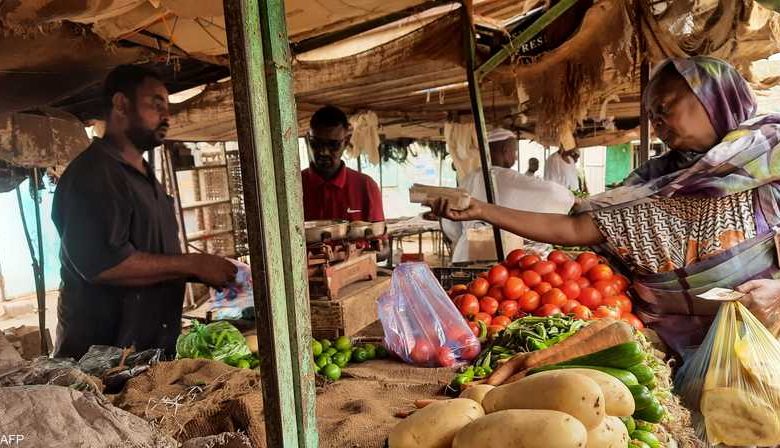7 months of war.. How Much is the Economic loss?

Report – Rehab Abdullah
The conflict between the Sudanese Army SAF and the Rapid Support Forces RSF entered its seventh month in the coming days. The Sudanese economy faces glooming future, particularly as it suffers from great pressures and complicated challenges that require reform.
Some wonder about the extent of the Sudanese economy’s ability to restore economic balance, and observers are waiting for an announcement about the extent of the losses that the Sudanese economy is inflicting.
Economic indicators
In light of the ongoing fighting between the SAFand the RSF there is an increase concern on the impact of the conflict on the Sudanese economy, which has been suffering from.
The impact on it is primarily in economic indicators, including the exchange rate, which has now exceeded one thousand pounds against the dollar, the inflation rate, which reached 63% in March before the outbreak of war in April, the growth rate, and the balance of payments, with increasing doubts about the Sudanese economy’s ability to return to the path of growth.
High cost
It is so clear that the Sudanese economy pays a high cost at all levels, in that it pays a double bill for the current unrest and the basic structural crises that Sudan is suffering from, which confirms that the Sudanese economy is incurring huge losses.
While there are no accurate estimates regarding the size of the losses suffered by the Sudanese economy, the current data in Khartoum clearly reflect some of the extent of the extensive damage that the conflict has inflicted on the country’s economy.
These data also reveal the fact that every passing day adds more losses to the local economy, in addition to the extension of these effects to neighboring countries.
International forecasts
The International Monetary Fund IMF expected the Sudanese economy to contract by 18.3% during the current year, which is the largest in its history, according to economist Abdel-Azim Al-Umawi, attributing this to direct shocks and impacts 6 months after the outbreak of war between the army and the Rapid Support militia.
However, economic expert Dr. Mohamed Al-Nayer affirmed the economic situation that Sudan has the ability to restore economic balance even if there is no external support , depending on natural resources that Sudan possesses inside and inside the earth. He indicated in his interview with (Sudan Events) that this This doesn’t mean rejecting what comes from abroad, but it conditionalizes what comes from abroad to be unconditional loans and grants or have specific obligations without any interference or pressure. Therefore, if the loans and grants come without conditions on the Sudanese state, he stressed the possibility of them helping a lot and shortening the time in restoring The balance of the Sudanese economy, and if it does not come, especially since the international community’s experience with Sudan did not include any commitment to fulfilling promises. He added that if Sudan is able to exploit its natural resources, it is possible to return the economic situation to its correct path. He conditioned this on resolving the battle and forming an independent, competent government that would manage the transitional phase, then The elections come to determine who will rule Sudan through it, and during this period it is assumed that all political parties are preparing for the elections and that they will not have a role during the transitional phase in the executive branch unless there is a formation of a legislative body in which the political parties can be represented without exception.
The size of the losses
Regarding the losses of the economy so far, Al-Nair refused to predict the size of the losses, and attributed this to the fact that it requires an integrated study, information, and inventory, and it is difficult to estimate them now until after the end of the battle. The losses will be counted in the commercial sector, markets, industrial infrastructure, electricity, water, military drainage itself, and even looting. Money or furniture, homes, and cars were given to citizens, until the wheel of production stopped in many factories. Its costs are also calculated clearly and are likely to be estimated at tens of billions of dollars after assigning a specialized scientific committee to tally the losses and be able to announce an accurate figure on the size of the losses.
Declining revenues
Sudanese Finance Minister Jibril Ibrahim, in his interview with the official Sudanese agency “SUNA”, acknowledged that the Sudanese economy had been affected. He stressed that the most prominent problems were the decline in the country’s revenues to less than a third, explaining that the fighting had affected the movement of exports, especially from the western regions, in addition to an increase in Demand for foreign currencies after factories stop working.
Ibrahim said, “The continuation of the war does not allow an accurate count of all the losses,” stressing that “the destruction affected factories, companies, public facilities, banks, and others,” and pointed out that the looting operations “affected many properties in areas witnessing UN armed confrontations.



